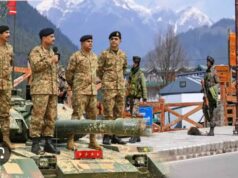With this organisation’s help, Indian army veterans are becoming entrepreneurs
For over two decades, RY Naidu served as a havaldar at the ER-5 unit of the Indian Army. As he inched closer to retirement, Naidu began to look for an alternative livelihood. He was sure he did not want to take the usual path – private-sector jobs, agriculture, and security-related jobs.
Twenty days before his retirement, Naidu attended the five-day I Create India’s ‘Aspiring Entrepreneurs’ workshop in Bengaluru in September 2018. Here, he realised what his ‘second innings’ should be, starting his entrepreneurial journey. He says,
“I understood that to start a business I don’t need extraordinary skills. I play to my strengths. I decided to start an RO Plant as I have worked in the water treatment plant in the Army.”
The workshop helped Naidu develop and execute his business plan. I Create also helped him with funding and “handholding when the business is started.”
Today, he has set up an RO plant Srivari in Vijayanagar, Andhra Pradesh, where he has invested Rs 50 lakh, using 50 percent of his savings and by taking a loan from the PM Employment Generation Programme Scheme.
Participants engage in activities at the workshop
Naidu is one among 50 ‘Army Entrepreneurs’ in India who have decided to start their own businesses after retiring from he defence forces.
“Each year, close to 60,000 of skilled and disciplined army personnel look to starting their second innings. They are in their mid-30s and have the right background to be entrepreneurs,” says Ulhas Kamat, CEO of I Create India.
The organisation has an MoU with the Department of Indian Army, Government of India, and has conducted 20 workshops for retiring army jawans. Since 2016, it has helped to create 50 entrepreneurs from retired army personnel.
The need Participants prepare their business plan at the workshop
Life after serving in the army can be as challenging as a battle. The transition from a military to civilian life is not easy, and not everyone can make it work.
The Indian Armed Forces have approximately 75,000 personnel in the Army, Navy and Air Force, who relinquish their uniform every year. Most of them are between 35 and 45 years old with responsibilities and a lot of life ahead.
They possess multiple skills, technical prowess, and knowledge in computers, engineering, supply chain and logistics to satellite communication.
In fact, the Indian Army has 159 qualified trades and the defence personnel are offered vocational training, trade apprenticeship, leadership and management training.
“As they reach retirement age, they start to think about life ahead as a civilian. They all want to work and earn money, provide for their family. And they want to do it in their hometown since they have been away for such a long time.
They all have some skills and passion; they want to make a career out of it, but they get lost and do not know how to move from the idea to the implementation phase,” Ulhas explains.
Participants pitch their ideas to mentors at the workshop
For instance, Nayak Manje Gowda, formerly in the Indian Army, recalls his life post-retirement. Lack of information about the available job and career opportunities pushed him to take up a job as a security guard in a Reliance store in addition to owning a small shop in Hassan, Karnataka, selling confectionary, packaged food and other daily-use items.
Financial constraints coupled with the steady salary from Reliance stopped him from taking the entrepreneurial plunge. Heeding to his fellow army friends’ advice, Nayak attended the I Create workshop in April 2016.
“After the workshop, I did some market research and found that if I add a Xerox machine, it will fetch me more business because my shop is located near the Panchayat office and a school.
The training helped me to analyse each situation and find a business opportunity to excel as an entrepreneur. I am now a full-time entrepreneur and am able to spend more time with my family,” he says.
He has quit his job as a security guard and is financially independent now.
I Create India model
I Create India is a non-profit organisation focussed on entrepreneurship and employability skills development. In 2016, it signed a Memorandum of Understanding with the Directorate of Indian Army Veterans (DIAV), to establish Business Incubation Centres (BICs) at different locations of Army Units in India to help veterans and their families to start their own enterprises.
Through a five-day ‘Aspiring Entrepreneurs’ workshop, held every month across India, it creates awareness on entrepreneurial skills in practical workshops, which include a mentoring session for business plan preparation and execution.
“What we teach is sector agnostic. We don’t give any skill training, because they are already highly skilled individuals. We focus on only one thing – cash flow and how to make money from a business idea.
So whether you are in the garment business, making masala dosa or ice cream or have an RO plant – it all comes down to executing a profitable idea and we guide them with the know-how process,” Ulhas explains.
Participants interact with the mentors
The ‘Entrepreneurship Development Process’ is broken down to five distinct but interrelated stages: creating awareness about entrepreneurship, providing training in entrepreneurial skills, mentoring aspiring entrepreneurs in putting their business plan together, helping with access to finance, and business mentoring and hand-holding during the initial stages of enterprise operation.
Each batch has 25 to 30 participants in the first stage. After the AEW, typically about six to 10 (20 to 30 percent of participants) come forward to start their own business.
These candidates are put through the next stages. They are given one-on-one mentoring by I Create Mentors, which can last anywhere from one to three months.
During the mentoring, every candidate is told about the various options to get funding – starting with own capital, capital from friends and family, and various government schemes, etc.
After getting the funding, the organisation helps the entrepreneur to start a business and continue to assist them in case of any problem.




